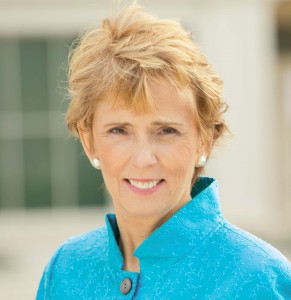POST: In Medicine, The “Soft” Skills Are Essential
Michael’s Story: The Beginning
“I’m straightforward, to the point,” said Michael, the CEO at a large inner-city hospital. “The people I work with—they may not like me, but they know I’m right.”
“What else?” I said to Michael, whom I had just been retained to coach.
“I just wish they understood me. I do what’s best for the patient. They don’t always do that.”
“How’s that working for you?” I asked.
“Hmm. It works. Sometimes.”
Like most physicians in positions of leadership, Michael regards himself as the expert who knows the most. Others should just listen to him and fall in line. He prides himself on being straightforward, for “saying it like it is.”
Of course, that’s part of the training most doctors receive. We consider our patients’ signs and symptoms and come up with a list of possible causes. Our brains are taking in data, and, one-by-one, we add to, or subtract from, the differential diagnosis.
The Importance of Emotional Intelligence and Empathy
I used to say that I wanted a mom as my family doctor: someone who cared for me, listened to me and comforted me when sick. But should I need a surgical procedure, I wanted the best technician: the person who knows where and when to cut, how to proceed logically and respond effectively in emergencies. I expected a foundation of intelligence and technical expertise, not necessarily someone who could tuck me into bed at night.
I didn’t think communications skills mattered. It’s about manual skill and clinical acumen, right?
Then I read an article indicating empathic surgeons have improved patient outcomes.
We all know about the power of the placebo effect, when a “sugar pill” results in improved outcomes. But there’s also a “no-cebo” effect. That’s when patients’ negative expectations lead to the treatment taking a more adverse turn than anyone would have expected. In other words, you get what you expect.
A 2015 study from the University of Florida found that when we encounter rude behavior in the workplace, we have an increased likelihood of labeling future workplace interactions as rude, and we are more apt to be rude to those around us. We tend to mirror the behavior we see. So, if the person at the top is a poor communicator who cuts people off, doesn’t listen, or shames them in public, they shut down, fearful of antagonizing the boss. Patient care suffers because people are afraid to speak up and because the level of ambient rudeness goes up.
Medical schools focus on clinical reasoning—getting the diagnosis right. In today’s environment of chronic diseases, social determinants of health and team care, equally important are the “soft,” or essential, skills: deep listening, asking questions and giving answers, motivating others, delegating and creating a high-performing team. These are the traits of effective leaders. And yet, medical schools spend less time on this than on clinical science, and hospitals tend to overlook it when they evaluate and provide continuing education for their doctors.
‘Everything Has a Technical Solution’
As the late Richard W. Schwartz (University of Kentucky College of Medicine) and his colleagues explained, leadership skills are not emphasized in medical school or residency programs. So, our education, which leans toward quantitative skills, leads us to approach problems with a bias toward a technical solution.
That can be a big problem in a clinical setting. Years ago, in a hospital I occasionally visited, a young attending physician inadvertently inserted a breathing tube into an eight-year-old child’s esophagus, or entry tube into the stomach, instead of in the windpipe, or trachea.
Especially with children, intubating is difficult, so this error isn’t unheard of. Typically, someone calls attention to it, the tube is withdrawn, the patient is ventilated, and then the team makes another attempt. In this case, though, the residents and medical students were afraid to say anything because the attending physician was liable to blow up and scream at whomever spoke.
The child died. From a routine surgery.
Civility, Compassion, and Kindness
Why, as a patient or colleague, should you care whether a doctor is civil? Because lack of civility can quite literally lead to medical errors, patient harm or death.
The Center for Compassion and Altruism Research and Education (CCARE) at Stanford conducted a literature review, showing increasing scientific evidence indicating kindness improves patient outcomes, decreases pain and anxiety, and leads to faster healing.
If you think this is a “soft skill,” ask someone who’s been on the receiving end of incivility whether this felt soft.
Michael’s Story Continues
When I worked with Michael, I began by interviewing 10 people: people who reported to him, colleagues he worked with, and his boss. Based on those discussions, I produced a 360 report with my findings, all anonymous.
Michael’s initial reaction after reading the report was, “I know exactly who said that—he’s wrong. And this guy—please! He doesn’t like me. I know the nurse, Melody, is out to get me.”
I said, “My first 360 assessment was brutal. I was embarrassed to show my face. I thought everyone was out to get me. Over time I realized that honest feedback is a gift, and necessary for behavior changes.”
I continued, “Remember at our last session, when you picked up the telephone to speak to your daughter? You were kind, gentle and patient with her. What would it look like, feel like, if you were kind, gentle, and patient with your colleagues and staff?”
As my coaching engagement with Michael continued over 15 months, he began to understand what was missing from his skill set. To his credit, he made a real effort to improve. He dropped by his direct reports’ offices to see how they were doing—unrelated to work. He remembered their birthdays. He began listening to their ideas, not just trying to win them over to his, by sheer force of personality.
At the end of our coaching engagement, I returned to the 10 people I had interviewed at the beginning. As Michael read his report, he began smiling.
According to his colleagues, he had completely turned around, and his discovery of these so-called “soft skills” was clearly helping the rest of the team perform better.
“I think they’re being overly positive,” he told me. “I still have a long way to go.”
https://www.mdmag.com/medical-news/in-medicine-the-soft-skills-are-essential
[mashshare]CATEGORIES:Recent Blog Articles

In Medicine, The “Soft” Skills Are Essential
Michael’s Story: The Beginning “I’m straightforward, to the point,” said Michael, the CEO at a large inner-city hospital. “The people I work with—they may not like me, but they know I’m right.” “What else?” I said to Michael, whom I had just been retained to coach. “I just wish they understood me. I do what’s […]
CATEGORIES: Coaching Emotional Intelligence Physician Leadership

Dr. Margaret Cary spoke at the American Society of Hematologists
December 3, 2018 Dr. Cary delivered an interactive presentation on Women’s Leadership at the Women in Hematology reception at the ASH’s annual meeting of nearly 28,000 attendees in San Diego.
CATEGORY: Coaching

What We Can Learn About Leadership from The Boss
A Bruce (The Boss) Springsteen fan reflects on what her coaching clients can learn about leadership from him.
CATEGORY: The Doctor Weighs In

Develop a Coaching Culture
What might you do to develop a coaching culture in your office, in your organization? “I know I blow up and get angry. I am protective about my patients and the physicians in my department and I can’t help myself.” Dr. Leonard was one of my coaching clients, a surgeon who had left a trail […]
CATEGORIES: Coaching Physician Leadership

The Value of Coaching in Medicine
With Jack Penner Jack and I recently joined Dave Etler, Administrative Services Coordinator for Student Affairs and Curriculum with Carver College of Medicine at the University of Iowa, and Carver medical students Amy Young, Aline Sandouk, and Mark Moubarek at The Short Coat Podcast for “weird news, fresh views, helpful blues, and interviews by students, for students” […]
CATEGORY: Medical Education

The Value of Presence in Medicine
When an American doctor is asked to examine her friend’s mother in a Chinese hospital, she realized it was her presence and caring that really mattered. Zhuo came with a self-assured attitude, lots of stories, and several films under her belt. I had volunteered to host a film director during the Denver International Film Festival. […]
CATEGORIES: Emotional Intelligence Quality of Care
